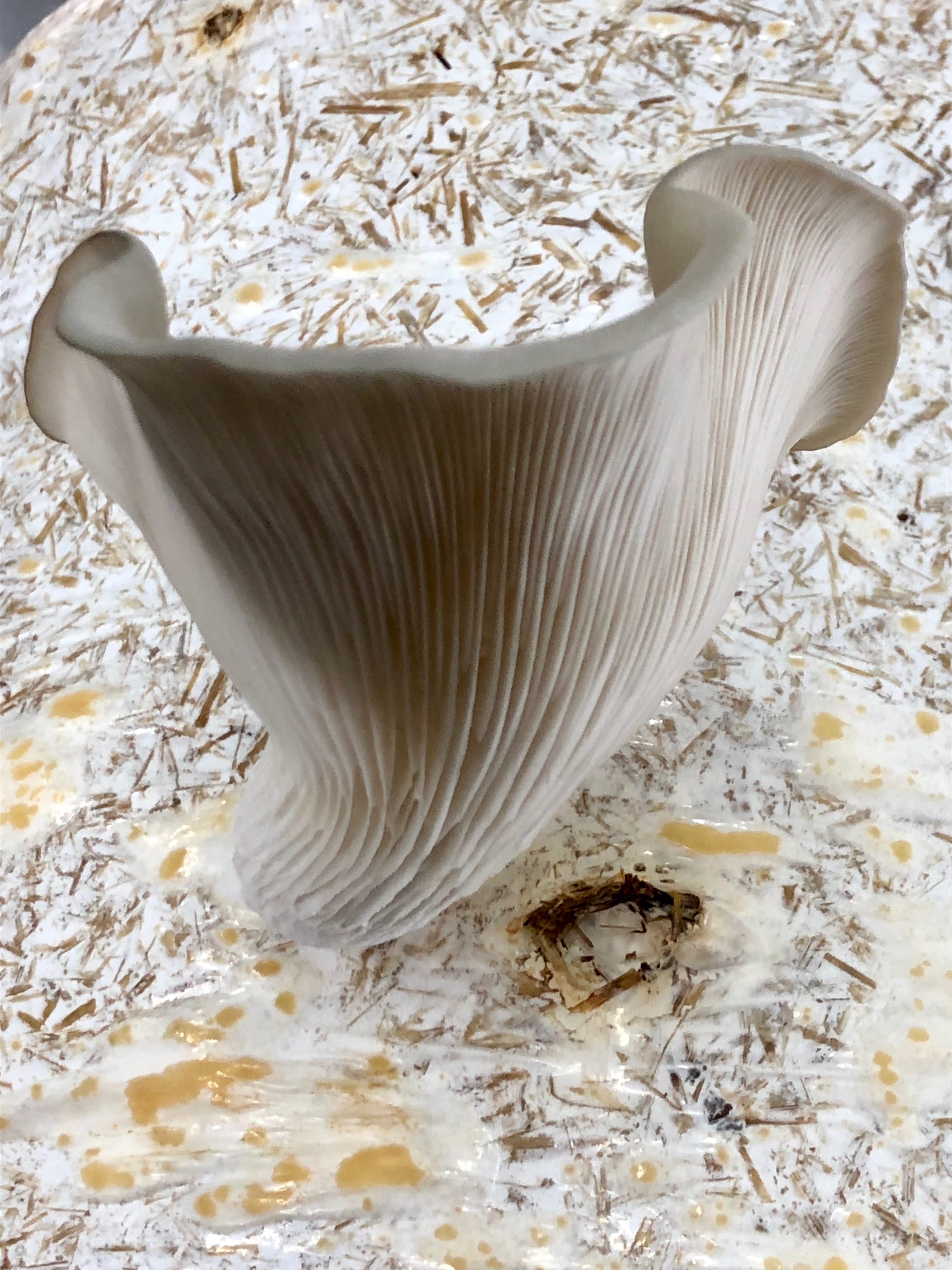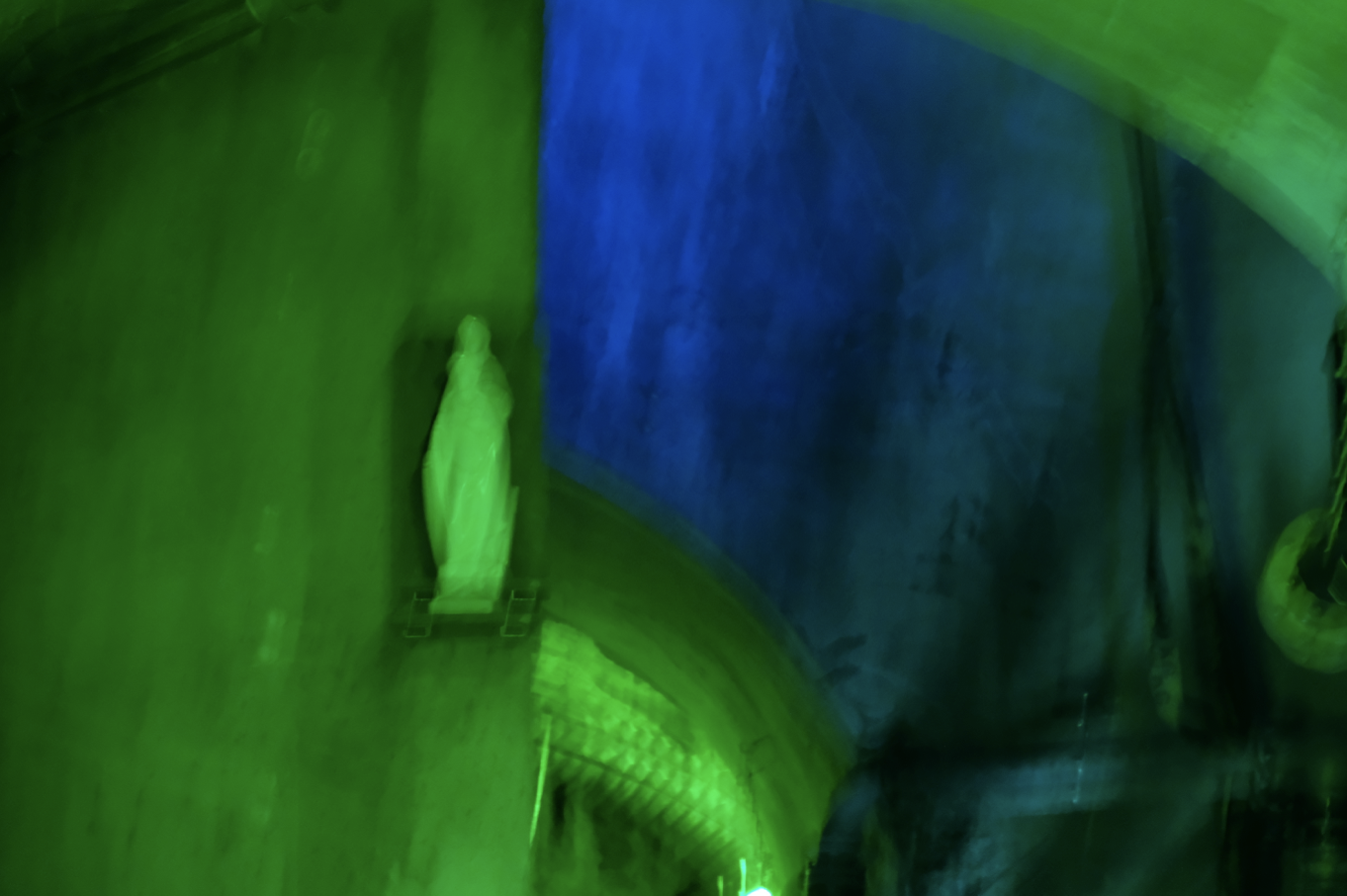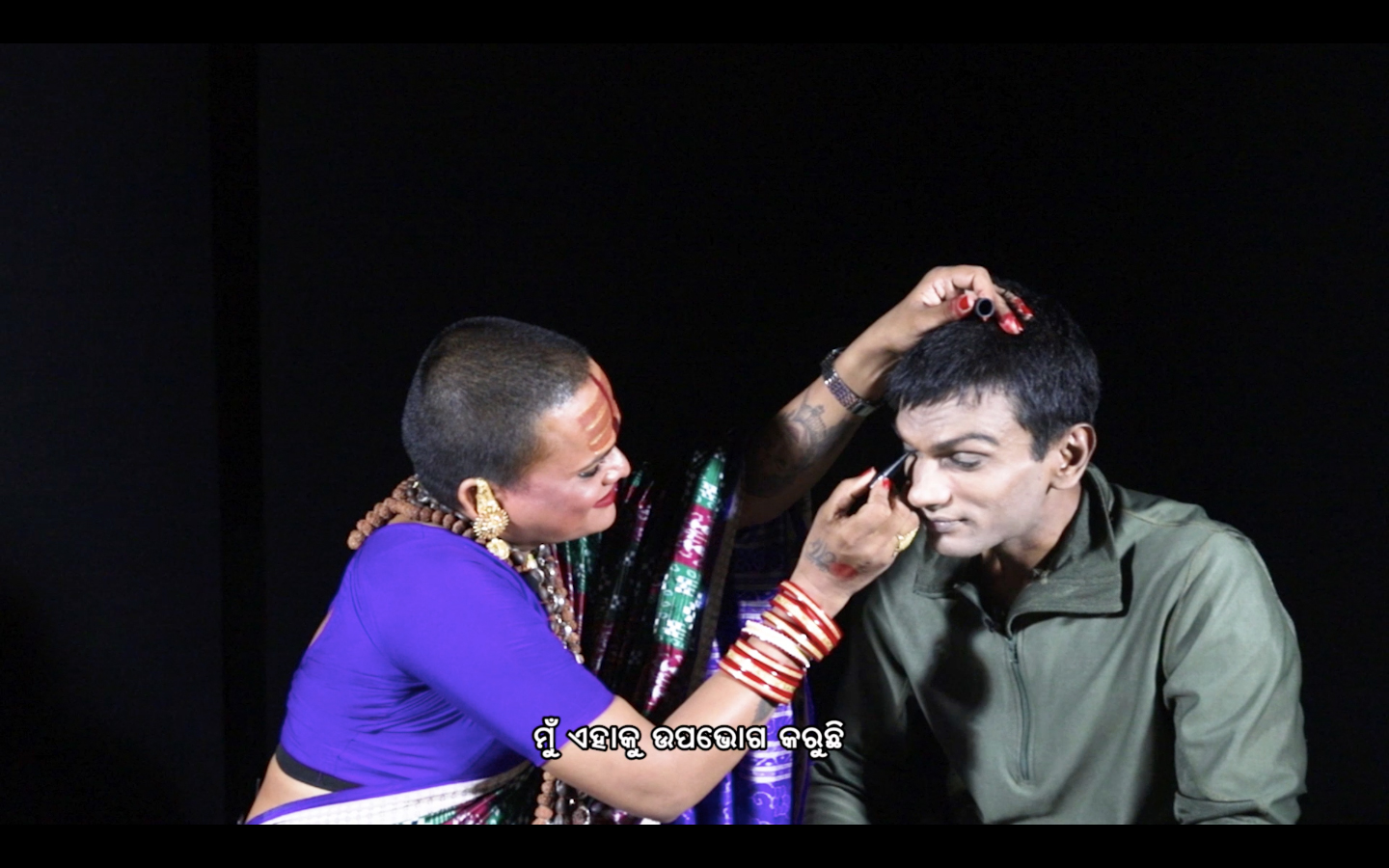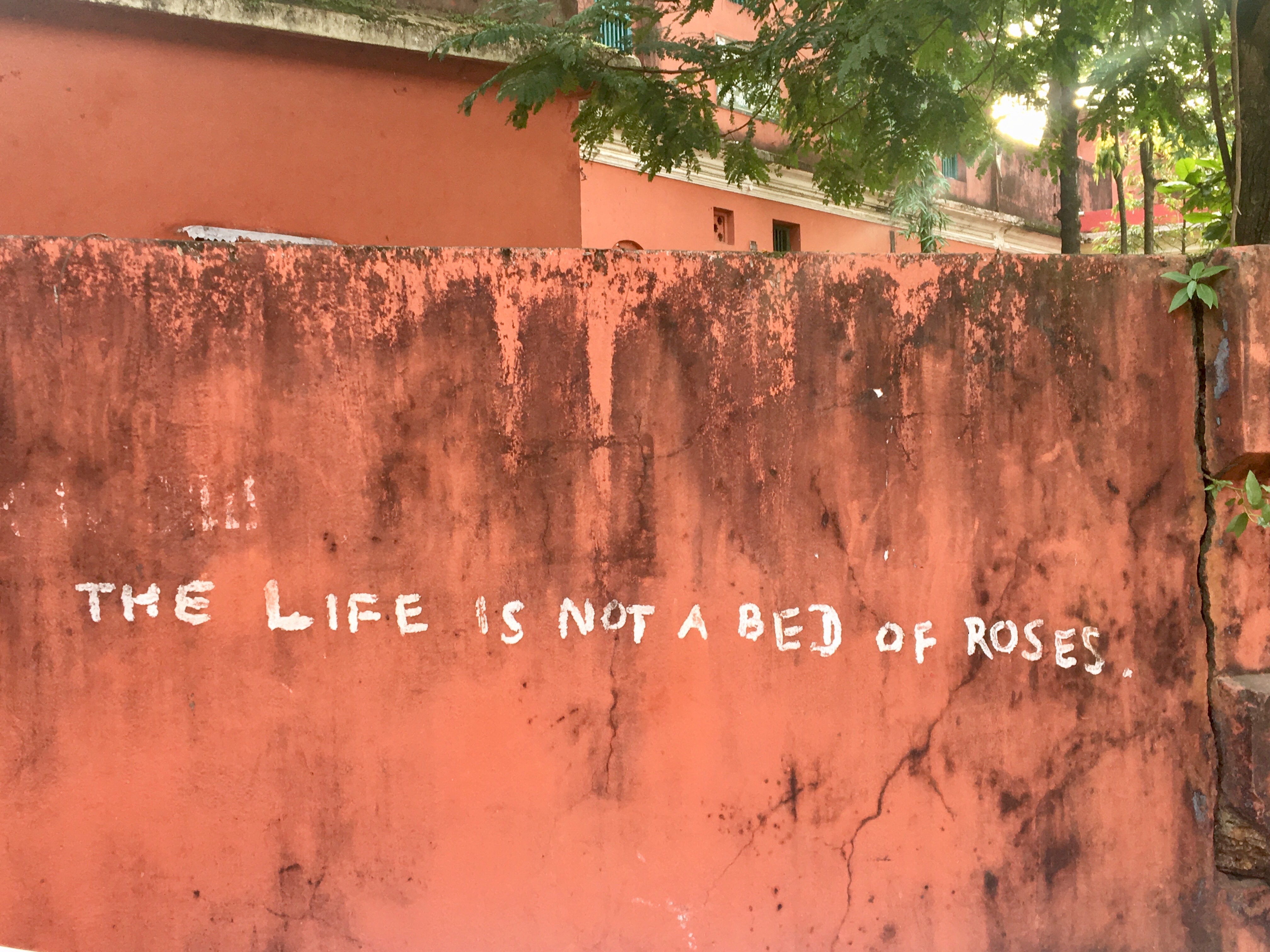Art Works
ONGOING
UNCONTROLLED LIVES

Anna Lowenhaupt Tsing refers in her book “The mushroom at the end of the world” to ecological relations by First Nature and Second Nature to the environmental transformations caused by capitalism. Third Nature describes everything that survives despite capitalism. The first living thing to emerge from the soil of the blasted landscape after the atomic bomb on Hiroshima in 1945 was a mushroom. Like rats, raccoons, and cockroaches, mushrooms are willing to put up with some of the environmental messes we humans have made.
READ MORE2018
THE MISSING BODIES OF CAPITALISM

My ongoing artistic and academic research on The missing bodies of capitalism focusses on the disappearances of physical bodies from the rapidly changing world of work. Are the contours of the human body - its psycho-physical apparatus, its sensorium, its extracorporeal presence - being changed to accommodate the new conditions of work? Are bodies taking new shapes to make way for a new future of work, or is the body being abdicated for an absence, for an ‘off-shoreness’ of cognition itself?
READ MORE2018
CITY AS DEMO

My ongoing artistic and academic research on The missing bodies of capitalism focusses on the disappearances of physical bodies from the rapidly changing world of work. Are the contours of the human body - its psycho-physical apparatus, its sensorium, its extracorporeal presence - being changed to accommodate the new conditions of work? Are bodies taking new shapes to make way for a new future of work, or is the body being abdicated for an absence, for an ‘off-shoreness’ of cognition itself?
READ MORE2016 / 2017
BACK TO WORK

What is the work of art in the art of work? Do we become visitors, observers, passersby, ghosts, guests, artists as fake employees, or fake artists as employees? Must we be a bug in the system, much like a software virus, trying to ingest the sheer volume of the company, with insufficient or erroneous logic? Could we perform well? Performance is a claim - productivity’s claim, technology’s claim, or a claim measured by how and when deviations occur. To perform is to know, for knowability needs to be unmeasured, through occupying work with a soft wear - an outfit, a posture, an ID card that beeps open doors and computers. The workplace becomes not the setting for the work, but art itself.
READ MORE2015
ON MOURNING

NOTES ON MOURNING invites an Oppari performer to discuss the tradition of mourning on stage. Opparis are professional mourners in Tamil Nadu (Southern India). These mourners belong to the living tradition of Oppari, practised mostly by women who perform bereavement at a person's death. Opparis are rich in wordplay, and improvise lyrics, melodies, and the art of ‘crying’, often for something in return (offerings, gifts, money). However, the tradition is dying out in contemporary India.
READ MOREUNCONTROLLED LIVES

Anna Lowenhaupt Tsing refers in her book “The mushroom at the end of the world” to ecological relations by First Nature and Second Nature to the environmental transformations caused by capitalism. Third Nature describes everything that survives despite capitalism. The first living thing to emerge from the soil of the blasted landscape after the atomic bomb on Hiroshima in 1945 was a mushroom. Like rats, raccoons, and cockroaches, mushrooms are willing to put up with some of the environmental messes we humans have made.
READ MORETHE MISSING BODIES OF CAPITALISM

My ongoing artistic and academic research on The missing bodies of capitalism focusses on the disappearances of physical bodies from the rapidly changing world of work. Are the contours of the human body - its psycho-physical apparatus, its sensorium, its extracorporeal presence - being changed to accommodate the new conditions of work? Are bodies taking new shapes to make way for a new future of work, or is the body being abdicated for an absence, for an ‘off-shoreness’ of cognition itself?
READ MORECITY AS DEMO

My ongoing artistic and academic research on The missing bodies of capitalism focusses on the disappearances of physical bodies from the rapidly changing world of work. Are the contours of the human body - its psycho-physical apparatus, its sensorium, its extracorporeal presence - being changed to accommodate the new conditions of work? Are bodies taking new shapes to make way for a new future of work, or is the body being abdicated for an absence, for an ‘off-shoreness’ of cognition itself?
READ MOREBACK TO WORK

What is the work of art in the art of work? Do we become visitors, observers, passersby, ghosts, guests, artists as fake employees, or fake artists as employees? Must we be a bug in the system, much like a software virus, trying to ingest the sheer volume of the company, with insufficient or erroneous logic? Could we perform well? Performance is a claim - productivity’s claim, technology’s claim, or a claim measured by how and when deviations occur. To perform is to know, for knowability needs to be unmeasured, through occupying work with a soft wear - an outfit, a posture, an ID card that beeps open doors and computers. The workplace becomes not the setting for the work, but art itself.
READ MOREON MOURNING

NOTES ON MOURNING invites an Oppari performer to discuss the tradition of mourning on stage. Opparis are professional mourners in Tamil Nadu (Southern India). These mourners belong to the living tradition of Oppari, practised mostly by women who perform bereavement at a person's death. Opparis are rich in wordplay, and improvise lyrics, melodies, and the art of ‘crying’, often for something in return (offerings, gifts, money). However, the tradition is dying out in contemporary India.
READ MORE